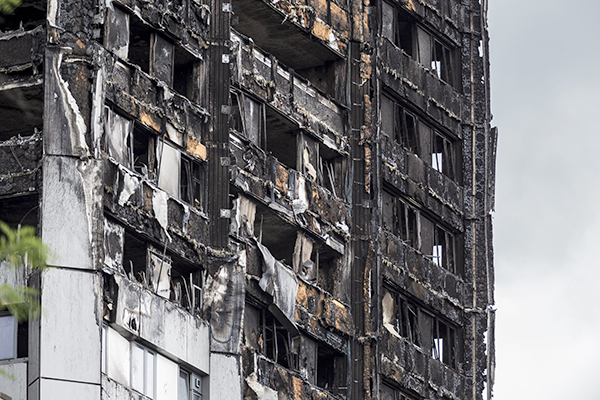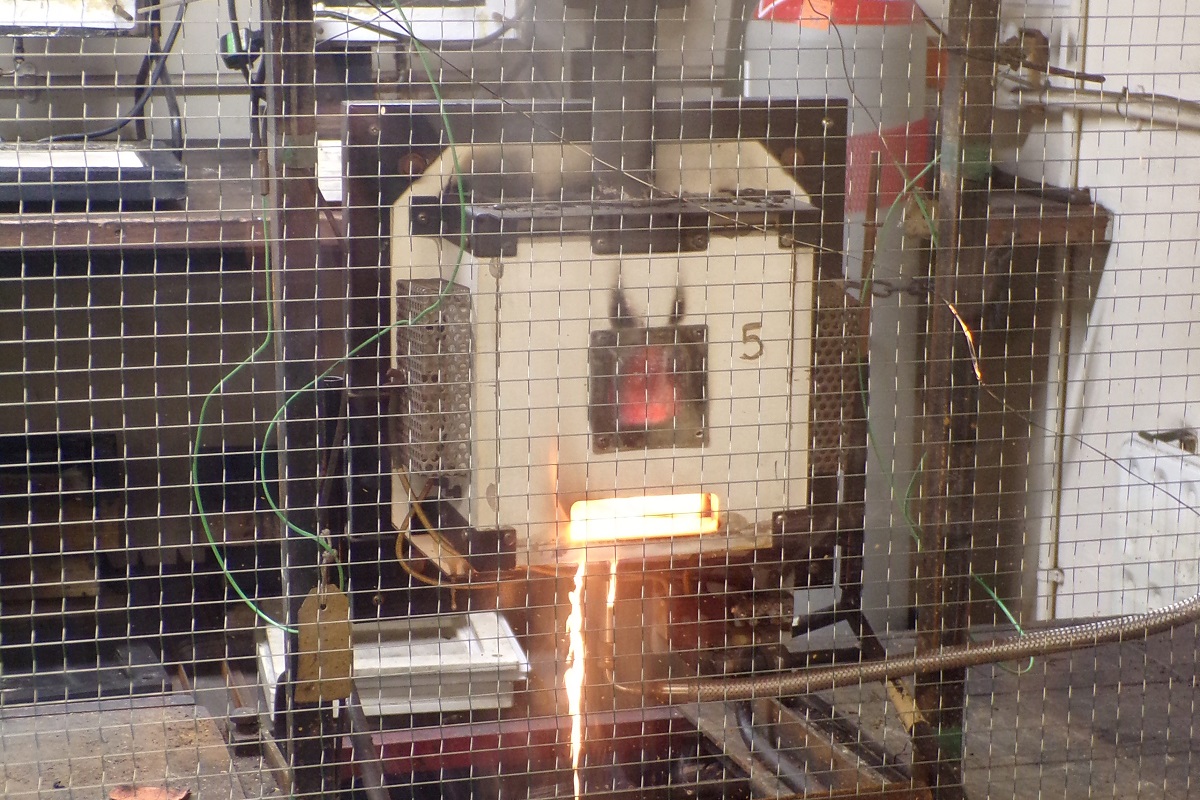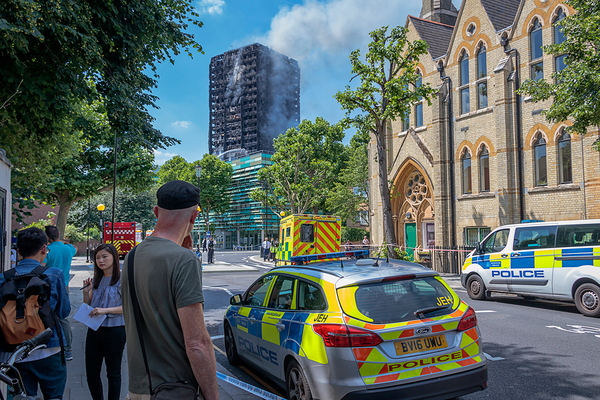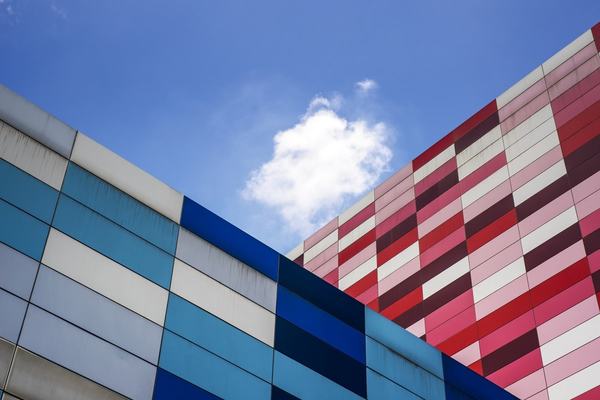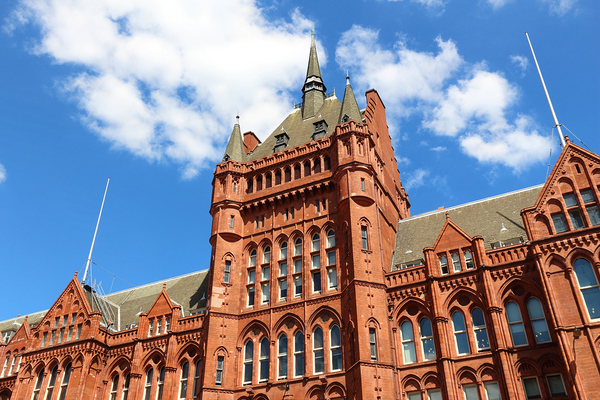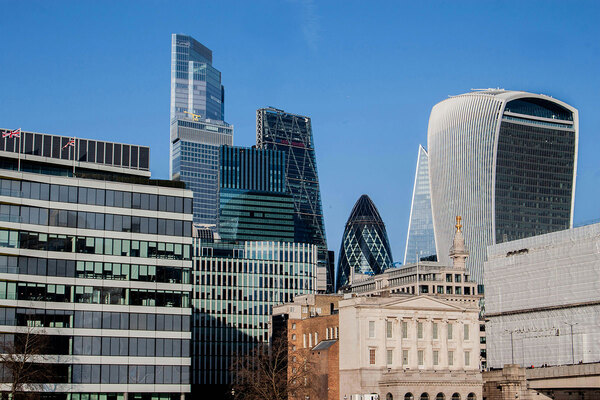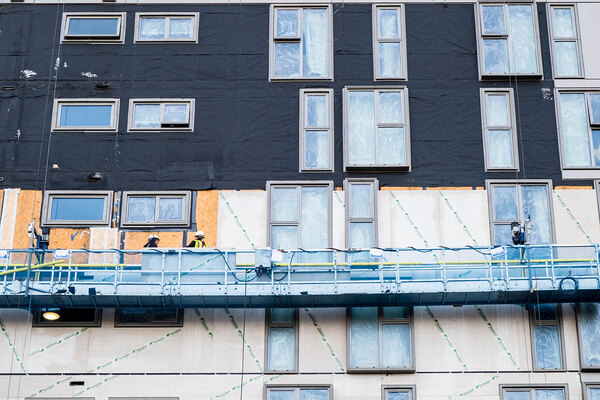Grenfell cladding panels were primary cause of external fire spread, inquiry hears
The cladding panels installed on Grenfell Tower in the 2012-2016 refurbishment were the primary cause of the fire spreading up the outside of the building, the official inquiry has been told.
Professor Luke Bisby, an expert witness to the Grenfell Tower Inquiry tasked with examining how the external facade of the tower caught fire and how the fire spread over the facade, made his first report today.
Professor Bisby wrote: “The primary cause of rapid and extensive external fire spread was the presence of polyethylene-filled ACM rainscreen cassettes in the building’s refurbishment cladding system.”
This conclusion was based largely on the results of the government’s post-Grenfell cladding tests, in which flames reached the top of a model wall with Grenfell-style cladding in less than seven minutes.
While he considered the panels to be the primary cause, he added that the use of combustible insulation in the cladding system, the presence of “extensive cavities” in the cladding system and the use of combustible insulation in window frames “may also have contributed to the fire’s spread”.
In the refurbishment of Grenfell Tower, vertical aluminium cladding rails were added to the outside of the building, resembling columns that extended from the face of the tower.
Cavity barriers, according to the report, were cut to make room for the rails, “and no cavity barriers were placed within these rails”, meaning fire could have spread up the cavities inside without being blocked.
Flames spread down, as well as up, the face of the tower, partly due to falling debris and molten polyethylene from the core of the cladding panels flowing downwards over the walls, the report said.
This video was compiled by Professor Luke Bisby to create a chronological representation of how the fire spread. It contains footage of Grenfell Tower on fire and may be distressing for some viewers.
Professor Bisby added that the “architectural crown detail” added to the top of the tower during the refurbishment “played an important role in increasing the rate and/or extent of lateral fire spread”.
This crown, at the top of the vertical rails, was – like the cladding panels – mostly made from ACM with a polyethylene core. Some of the edges were exposed, meaning flames could easily get to the combustible core, the report found.
Professor Bisby found that there was insufficient evidence as yet to determine the cause of the fire, or to say with certainty that it was a Hotpoint fridge-freezer in a kitchen.
This was also the conclusion of another report to the inquiry by Professor Niamh Nic Daeid, who looked into the cause and spread of the fire in the original flat and how it got out of that flat.
Update: at 16.23 on 4.6.18 This story was updated to include a video created by Professor Luke Bisby.
The Grenfell Tower Inquiry
Closing statements
Day 85: victims' lawyers attack the fire brigade
Further expert evidence
Including some additional evidence from emergency call handlers, bereaved and relatives
Day 84: further evidence from survivors and relatives
Day 83: swift evacuation of tower possible if residents alerted
Day 82: initial fire was extinguished but then returned to the flat
Day 81: overheating fridge-freezer most likely cause of fire
Day 80: fire doors installed did not match product tested
Day 79: resident advised to stay put despite fire in flat
Day 78: insulation and cladding material below required standard
Day 77: molten plastic spread blaze down tower
Day 76: 'stay put' should be dropped when fire spreads across floors
Other witness evidence
Police, ambulance, gas suppliers, council, TMO and call room operators give evidence
Day 75: call room operators give evidence
Day 74: further evidence from TMO officers
Day 73: TMO boss failed to pass information to firefighters
Day 72: fire finally extinguished when gas switched off
Day 71: further questions over stay put advice
Day 70: the police evidence
The bereaved, survivors and relatives’ evidence
Day 69: video shows smoke billowing through fire door
Day 68: KCTMO removed self closing mechanism and never replaced it
Day 67: gaps in cladding fixed with duct tape
Day 66: 'don't fix broken system with a sticking plaster'
Day 65: survivor dragged disabled man down nine floors to safety
Day 64: KCTMO 'did not replace broken fire door'
Day 63: foam insulation inside cladding 'exposed' says survivor
Day 62: father gives harrowing account of son's death
Day 61: council’s management organisation slammed for faulty electrics
Day 60: stay put advice ‘led to deaths’, residents say
Day 59: residents describe problems with new windows
Day 58: survivor describes how daughter saved his life
Day 57: firefighter evidence ‘a slap in the face’, says survivor
Day 56: relations with contractor were ‘toxic’
Day 55: resident 'never happy' with stay-put advice
Day 54: tenant gives evidence about housing association
Day 53: stay put advice 'felt like trap'
Day 52: resident saved by son's phone call
The firefighters’ evidence
Day 51: firefighter feared encouraging residents to jump
Day 50: the LFB commissioner
Day 49: fire chief reveals frustration over lack of building plans
Day 48: internal fire spread 'bigger story' than cladding
Day 47: fire officer considered evacuating crews over building collapse fears
Day 46: 'we were improvising' senior firefighter admits
Day 45: firefighter urged for abandonment of 'stay put' policy
Day 44: firefighter recalls radio signal difficulties
Day 43: call hander 'uncomfortable' with insisting residents stay put
Day 42: residents only told to leave if they called fire brigade back
Day 41: breathing equipment delay 'hampered rescues on upper floors'
Day 40: chiefs told firefighters to abandon policy
Day 39: firefighters reveal dramatic rescue of children
Day 38: firefighters issue aplogies to families
Day 37: council 'unable to provide tower plans'
Day 36: QC defends inquiry process
Day 35: Javid would welcome interim recommendations
Day 34: water from hose 'too weak' to reach the flames
Day 33: 'oh my god, we've been telling people to stay put'
Day 32: further fire fighter describes lack of equipment and low water pressure
Day 31: 'incredibly difficult' task of recording information outlined
Day 30: struggle to maintain control over rescue operation described
Day 29: fire service 'overwhelmed' by survival guidance calls
Day 28: 'the building beat us'
Day 27: firefighters 'forced to abandon plans to reach roof'
Day 26: poor signage hindered rescue efforts
Day 25: water pressure left firefighting equipment 'like garden hose'
Day 24: decision to abandon 'stay put' explored
Day 23: TV images 'could have assissted' rescue effort
Day 22: description of hectic scenes in the control centre
Day 21: account from the fire service 'nerve centre'
Day 20: firefighter describes 'huge volume' of calls from trapped residents
Day 19: firefighter 'given no training on cladding fires'
Day 18: evacuation would have been 'huge catastrophe'
Day 17: firefighters describe access and lift issues
Day 16: scenes of carnage likened to 9/11
Day 15: firefighters recount trauma of survival guidance calls
Day 14: firefighters describe spread of blaze
Day 13: firefighters recall radio difficulties
Day 12: "it was like a war zone"
Day 11: questions raised over fire fighters' radios
Day 10: watch manager emotional under questioning
Day nine: lead firefighter 'not trained in stay put policy'
The expert reports: authors give evidence to inquiry
Day eight: where the fire started
Day seven: what was in the cladding?
Day six: the cause and spread of the fire
Day five: expert highlights key issues
Day four: firefighters defend response to fire
Day three: council and contractors appear for the first time
Day two: lawyers for the survivors make their case
Day one: expert evidence released on cladding and stay put
The commemoration hearings
30 May: Grenfell Council 'recognised it should not house disabled victim above four storeys'
29 May: Anger on day six of the Grenfell Inquiry
25 May: Grenfell families 'forced to live in chimney with stay put policy'
24 May: Grenfell family complained about father being housed on 17th floor
23 May: Tributes to children on third day of Grenfell hearings
22 May: Emotions run high as Grenfell bereaved shown footage of the tower burning
21 May: Grenfell victims share tributes as inquiry opens
